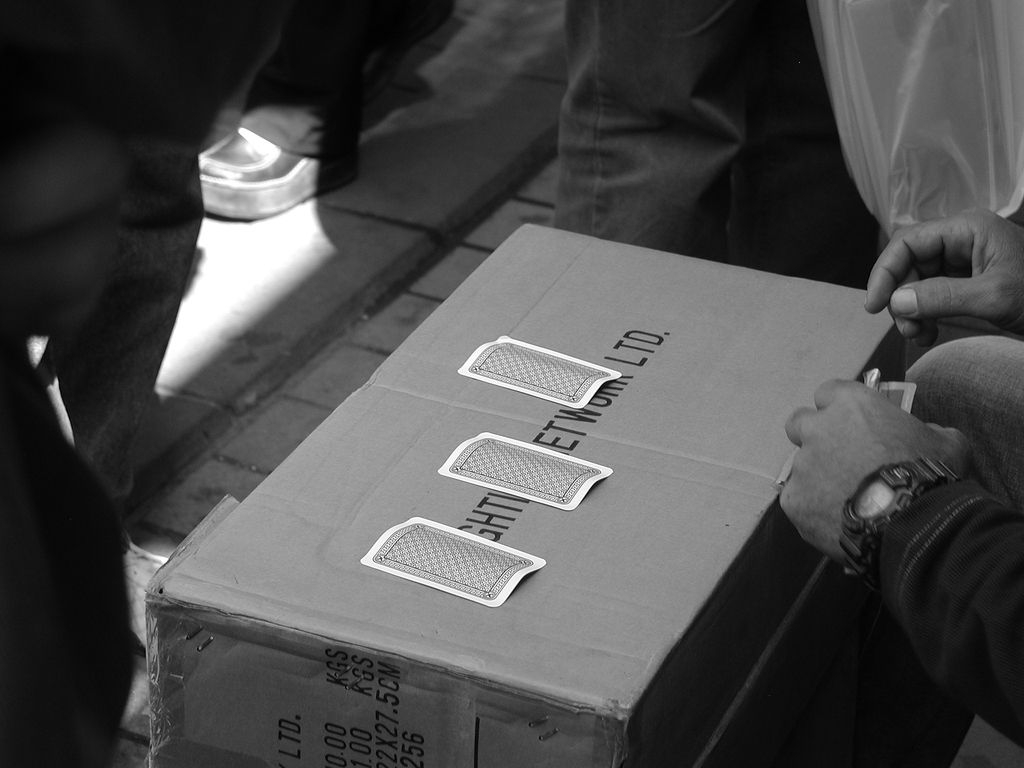Lion Cub’s Cookies - ‘Share a Warm Moment’ - Loneliness Awareness Week 2025
In honor of Loneliness Awareness Week, Columbus-based Lion Cub’s Cookies closed its two booming storefronts on a Saturday, its


After all this time, Big Tech monopoly Google and its competitor Bing will start "self policing," and making it harder people to find illegal streaming and download sties that pirate content. This comes as fantastic news because it not only takes one step in the right direction for musicians and filmmakers, but it also might help ease the epidemic of sex trafficking.
According to M Magazine:
"A voluntary code of practice will kick-start collaboration between the parties to demote links to websites that are dedicated to infringing content for UK consumers.
The code will accelerate the demotion of illegal sites following notices from rightsholders, and establishes ongoing technical consultation, increased co-operation and information sharing to develop and improve on the process.
The Intellectual Property Office (IPO) has led the discussions, with the assistance of the Department for Culture, Media and Sport (DCMS). The BPI, Motion Picture Association and the Alliance for Intellectual Property have been in conversation with Google and Bing."
Not a moment too soon. According to government statistics, in the U.K., nearly 80 million music tracks were accessed illegally in 2016--in a three month period alone. But if you dig a little deeper, it may not be the triumphant partnership between Silicon Valley and Content Creators after all.
A statement on the BPI's website reads in part:
Following a Government-chaired series of roundtables, a voluntary code of practice (‘code’) will kick-start collaboration between the parties to demote links to websites that are dedicated to infringing content for consumers in the UK. The code will accelerate the demotion of illegal sites following notices from rights holders, and establishes ongoing technical consultation, increased co-operation and information sharing to develop and improve on the process. It will also enable new practices to be adopted where needed.
The parties want to work together toward ensuring consumers have easy access to legal content and are not being inadvertently led to the infringing websites which proliferate online and risk to expose them to malware. A core aim is to ensure that users who are looking for legitimate content are much less likely to get presented with links to infringing content. There will also be collaboration to improve autocomplete suggestions which can lead users to infringing search results.
src="adland.tv/dland-booted-google-adsense-due-petas-misogynist-ads/1356111777">by banning us from Adsense. And we're a legitimate site but still don't have that monetizing opportunity. if anyone really believes Google will do the right thing here, we've got a bridge to sell you.
src="adland.tv/ow-google-makes-money-human-trafficking-and-piracy">sex trafficking.
According to M Magazine:
"A voluntary code of practice will kick-start collaboration between the parties to demote links to websites that are dedicated to infringing content for UK consumers.
The code will accelerate the demotion of illegal sites following notices from rightsholders, and establishes ongoing technical consultation, increased co-operation and information sharing to develop and improve on the process.
The Intellectual Property Office (IPO) has led the discussions, with the assistance of the Department for Culture, Media and Sport (DCMS). The BPI, Motion Picture Association and the Alliance for Intellectual Property have been in conversation with Google and Bing."
Not a moment too soon. According to government statistics, in the U.K., nearly 80 million music tracks were accessed illegally in 2016--in a three month period alone. But if you dig a little deeper, it may not be the triumphant partnership between Silicon Valley and Content Creators after all.
A statement on the BPI's website reads in part:
Following a Government-chaired series of roundtables, a voluntary code of practice (‘code’) will kick-start collaboration between the parties to demote links to websites that are dedicated to infringing content for consumers in the UK. The code will accelerate the demotion of illegal sites following notices from rights holders, and establishes ongoing technical consultation, increased co-operation and information sharing to develop and improve on the process. It will also enable new practices to be adopted where needed.
The parties want to work together toward ensuring consumers have easy access to legal content and are not being inadvertently led to the infringing websites which proliferate online and risk to expose them to malware. A core aim is to ensure that users who are looking for legitimate content are much less likely to get presented with links to infringing content. There will also be collaboration to improve autocomplete suggestions which can lead users to infringing search results.